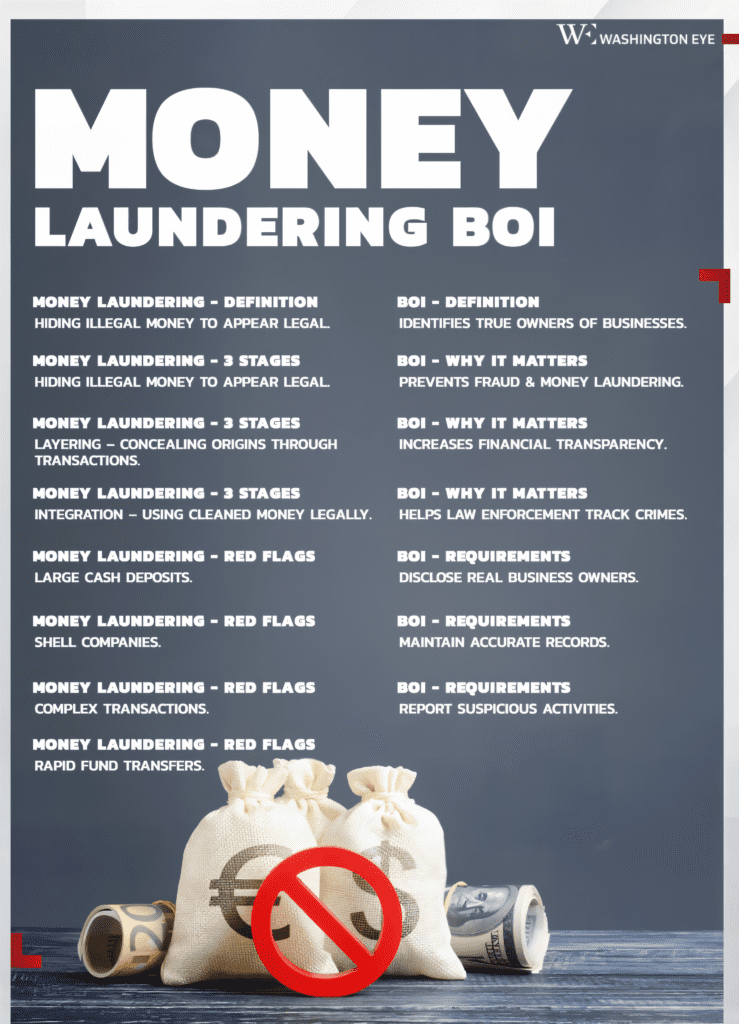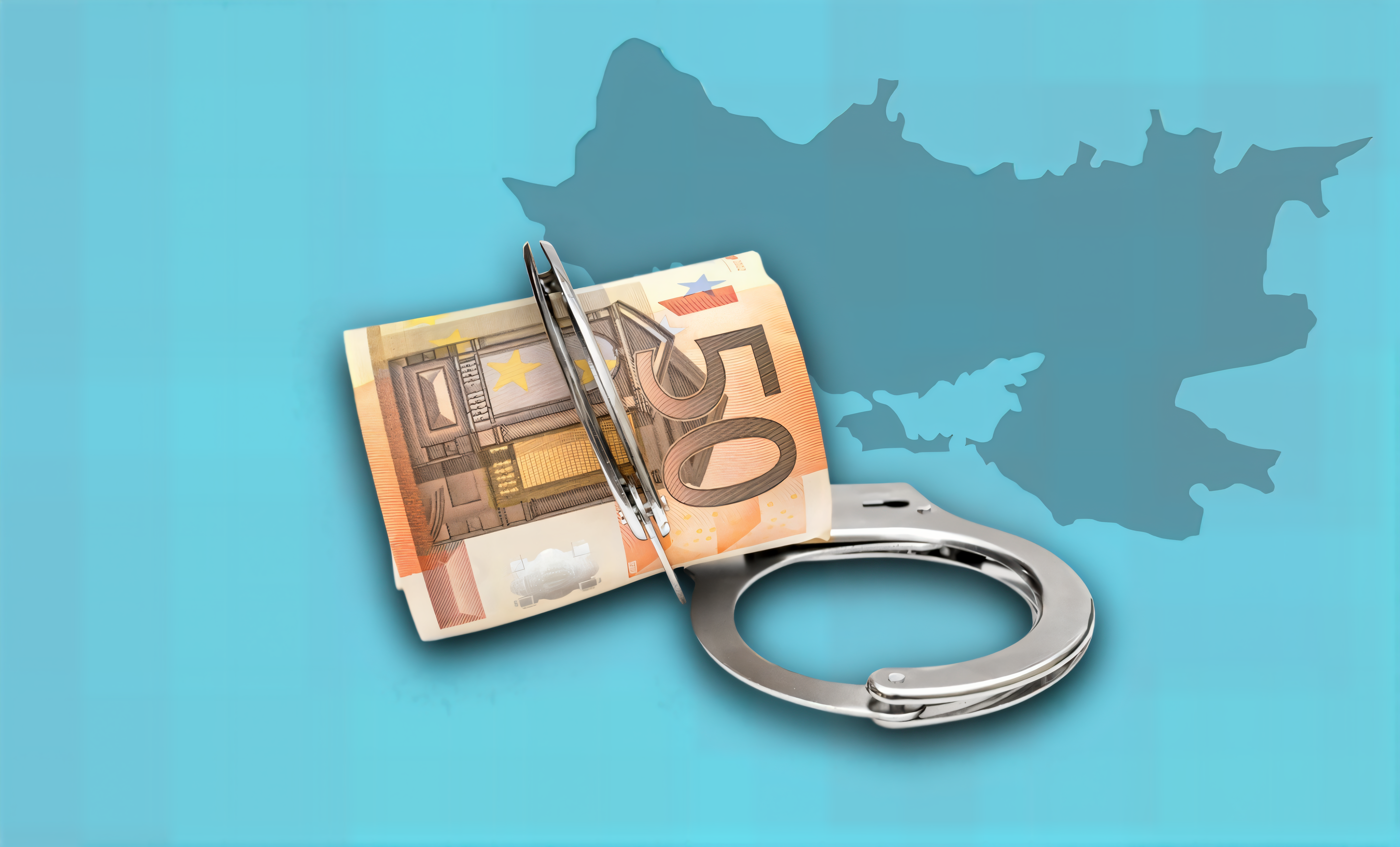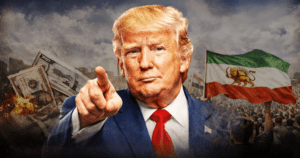In the ever-polarized world of global politics, Ukraine has once again found itself at the center of controversy, this time due to claims of large-scale money laundering. Prominent figures, including Director of National Intelligence Tulsi Gabbard, Head of the Department of Government Efficiency Elon Musk, and former National Security Advisor Lieutenant General (Ret.) Michael Flynn, have recently taken to X (formerly Twitter) to allege that Ukraine is a “giant money laundering scheme,” reigniting debates over the veracity of such claims.
Despite mounting evidence that these accusations are unsubstantiated, a perfect storm of deregulation, social media misinformation, and weakened government oversight has allowed these narratives to spread unchecked. The restructuring of fact-checking mechanisms on platforms like Meta and X, combined with the U.S. Treasury Department’s recent decision to halt enforcement of a key anti-money laundering law, has fueled an environment in which financial transparency is being eroded, misinformation is thriving, and public trust in institutions is being undermined.
The Resurgence of the Ukraine Money Laundering Allegation
The claim that Ukraine serves as a vast money laundering operation is not new. It has been repeatedly circulated by right-wing political figures and conspiracy theorists, particularly in the United States, since the escalation of the Russia-Ukraine war in 2022.
The latest wave of accusations surfaced after recent posts from Director of National Intelligence Tulsi Gabbard, Head of the Department of Government Efficiency Elon Musk, and former National Security Advisor Michael Flynn, who suggested that U.S. financial aid to Ukraine was being siphoned off through corrupt networks.
Musk, who has become increasingly vocal on geopolitical matters, responded to a post from Gabbard that called Ukraine a “money laundering operation masquerading as a democracy,” stating that “this should be investigated.” Flynn, who has long promoted conspiracy narratives, doubled down on the claim, stating that “Zelenskyy’s regime is the biggest fraud in history.” These assertions, however, are not backed by credible evidence.
The Collapse of Fact-Checking on Social Media
At the same time these claims gained traction, major social media platforms have dismantled their fact-checking programs, making it easier for false narratives to spread.
Meta’s Shift to Community-Based Moderation
In January 2025, Meta (formerly Facebook) announced the termination of its third-party fact-checking program in the United States, shifting instead to a community-based moderation system, similar to X’s Community Notes. CEO Mark Zuckerberg framed the decision as a move toward “free expression,” positioning it as a response to growing concerns over censorship.
However, critics argue that relying on user-generated content for fact-checking weakens the ability to combat disinformation, particularly in politically sensitive topics. Reports indicate that harmful narratives—including those concerning elections, public health, and Ukraine—have been allowed to spread unchallenged since the policy change.
X’s (Formerly Twitter) Community Notes System
Under Musk’s leadership since 2022, X implemented the Community Notes feature, a crowdsourced fact-checking system designed to provide context to misleading posts. However, its effectiveness remains highly questionable. Critics argue that the system often fails to flag false narratives in a timely manner, allowing misinformation to persist. For example, election-related misinformation and claims about Ukraine’s aid funds being laundered have been left unchecked for weeks.
Additionally, concerns have emerged that the platform can be “gamed” by coordinated groups, manipulating which posts receive corrections through Community Notes. Musk himself recently acknowledged that state-sponsored actors may be exploiting the system to push certain narratives.
The U.S. Treasury’s Decision to Halt Enforcement of Anti-Money Laundering Laws
As social media platforms dismantle their fact-checking systems, government institutions are also scaling back oversight mechanisms, further weakening financial transparency.
On March 2, 2025, the U.S. Treasury Department announced that it would stop enforcing the Corporate Transparency Act (CTA), a key anti-money laundering law that required millions of businesses to disclose their beneficial owners. The law was originally designed to combat financial crimes and prevent the use of anonymous shell companies for illicit activities.
The Treasury’s decision follows the Trump administration’s stance that the law places unnecessary burdens on businesses. However, financial transparency advocates warn that this move will allow criminals and corrupt actors to shield their financial activities from scrutiny.
By halting enforcement of the CTA, the U.S. government is simultaneously reducing oversight of financial crimes while figures like Musk and Gabbard amplify unverified claims of money laundering in Ukraine. This contradiction undermines legitimate anti-corruption efforts while enabling the very financial secrecy that allows illicit money to flow unnoticed.
The Firing of Inspectors General: Undermining Oversight
Further compounding the erosion of oversight, President Donald Trump has dismissed 17 inspectors general across various federal agencies, weakening government accountability.
Inspectors general are responsible for investigating fraud, waste, and abuse in government spending, making their removal particularly concerning amid allegations of corruption surrounding Ukraine aid. Critics argue that these firings eliminate key safeguards that ensure financial transparency, allowing unchecked disinformation to shape public perception.
The Danger of Unchecked Disinformation
The intersection of deregulation, political propaganda, and the collapse of oversight mechanisms poses a serious threat to public discourse. The Ukraine money laundering narrative serves as a prime example of how misinformation, once introduced, can persist unchallenged when both governments and social media platforms abdicate their fact-checking responsibilities.
This trend extends beyond Ukraine. By dismantling fact-checking systems, weakening financial regulations, and eliminating government watchdogs, a vacuum is created where false narratives thrive. In the case of Ukraine, disinformation could erode Western support for the country’s war effort against Russia, a goal that directly benefits the Kremlin’s strategic interests.
The claim that Ukraine is a large-scale money laundering operation is not backed by credible evidence, yet it continues to spread due to the influence of high-profile figures like Gabbard, Musk, and Flynn.
At the same time, fact-checking mechanisms on X and Meta have been weakened, the U.S. Treasury has suspended enforcement of anti-money laundering laws, and Trump has fired independent government watchdogs.
This perfect storm of deregulation and disinformation ensures that financial corruption narratives can spread freely, while actual corruption becomes harder to detect.
The public trust in institutions will continue to erode, allowing false narratives to shape policy in ways that benefit those who profit from deception rather than truth.














